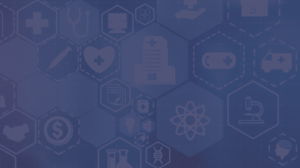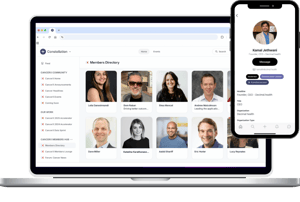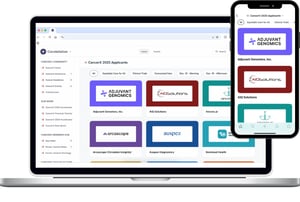
EHR Integration Basics for US Market Success
For international digital health companies eyeing the US market, understanding healthcare data security isn't just about compliance—it's about building trust and credibility in a market where patient privacy is paramount. As healthcare becomes increasingly digitized, the protection of sensitive patient information has moved to the forefront of both regulatory requirements and healthcare provider concerns.
The US healthcare market maintains some of the world's most stringent data security requirements, and for good reason. Patient health information is among the most sensitive data handled by any industry, and its protection is crucial for maintaining patient trust and provider relationships. For startups entering this market, understanding these requirements isn't optional; it's essential for survival and success.
At the heart of US healthcare data security lies HIPAA (Health Insurance Portability and Accountability Act), but this foundational regulation is just the beginning. The HITECH Act expanded HIPAA's scope, introducing more stringent requirements for breach notifications and increasing penalties for violations. Together, these regulations create a comprehensive framework that any digital health solution must navigate.
Beyond these baseline requirements, healthcare organizations increasingly look for additional security certifications that demonstrate a deeper commitment to data protection. SOC2 certification has emerged as the gold standard for new market entrants, providing assurance that proper controls are in place to protect sensitive information. Some organizations might also seek ISO certifications (particularly ISO 27001 for information security management) or HITRUST certification, which provides a comprehensive approach to regulatory compliance and risk management.
The implementation of these security measures must be considered across every aspect of your solution. This includes how you collect data, where and how you store it, how you transfer it between systems, and how you analyze and report on it. Each of these stages presents its own security challenges and requirements.
When it comes to data collection, clarity and consistency are crucial. You'll need to consider whether your data elements are mapped to industry standards, how they're captured (through free text or discrete fields), and who maintains ownership of different data elements. These considerations directly impact both security and usability.
Data storage and transfer present their own unique challenges. You'll need to ensure compliance with multiple standards while maintaining efficient operations. This might involve implementing specific security protocols, establishing clear data ownership policies, and determining appropriate frequencies for data sharing between systems.
The landscape of healthcare data security is constantly evolving, with new challenges and regulations emerging. While staying on top of these changes can feel overwhelming, it’s also an exciting opportunity for growth and innovation. With the right guidance and expertise, international startups can successfully navigate these shifts, ensuring their solutions are secure and compliant, no matter where they’re from.
Secure your path to the US healthcare market with expert guidance on data security. For more guidance on this topic, download our white paper "EHR Integration & Data Security 101."
SCHEDULE A MEETING WITH AN EXPERT
Ready to innovate? Decimal Health is standing by to assist with your next Digital Health venture.
.png?width=125&height=125&name=logo_wt%20(3).png)






.png?width=300&name=CancerX%20Decimal%20Banner%20(2).png)